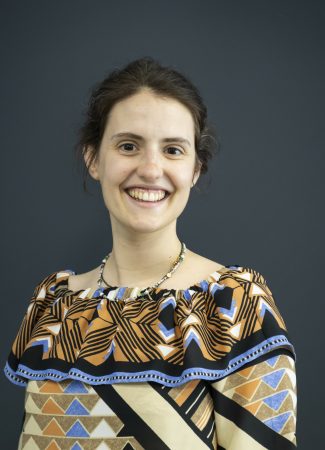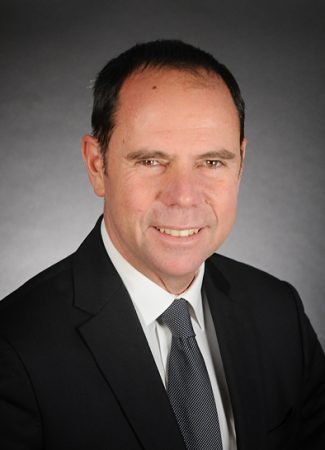The process was triggered on a large scale in the months following the Fukushima accident, with the German decision to decommission nuclear power plants. This dealt a devastating blow to the phase of excessive investment in traditional European utilities, an enthusiasm which had already cooled down considerably after the subprime crisis and the end of free CO2 allocations. Next came the big decisions: E.on to stop using conventional thermal power, Engie to abandon its centralised, gas-based model for smaller innovation projects, Enel to resell €1.5 billion in assets…
A monumental big bang that soon attracted new players, including infrastructure investment funds. From MIRA (Macquarie Infrastructure and Real Assets) and GIP to First State Investment, Allianz, Ardian and Antin, among others, when it comes to funds, the European energy market is at the centre of everyone’s attention.
The movement has since gained steam as oil producers enter the fray with their appetite for eclipsing all of the Old Continent’s other energy sources. The European energy galaxy is steadily remodelling itself, with its rising stars and grey areas, seeking to rebalance power and redistribute value.
Are new energy titans emerging in France and Europe?
Emblematic of this accelerated change: the insatiable appetite of Total, which is showing a huge ambition to become a major electricity supplier, and whose CCGT production is continuously growing: over the last two years, the oil group has acquired electricity supplier Lampiris, battery manufacturer Saft, Direct Energie (2 CCGTs of approx. 400 MW each and 550 MW of renewables, plus a planned 2400 MW, and its portfolio of supply customers), Celest (2 CCGTs of approximately 410 MW each), Uniper France (2 CCGTs of approx. 420 MW each, in the process of being validated) and Engie’s upstream LNG portfolio – which, incidentally, has made Total the second-largest global player in the LNG sector! The series is still ongoing, since the group is quite open about its objective of owning 10 GW of capacities between now and 2025.
And the French oil company is no exception: the English BP is also turning towards electricity and already owns the leading network of electric vehicle recharging stations in the United Kingdom. The Repsol group is applying a similar strategy in Spain, and Shell has a budget of 2 billion dollars for new energies, 80% of which is to be invested in electricity. If these amounts remain modest next to the investment budgets of these mastodons, the ambition is enormous: becoming the leader in a related field by betting on gas, renewable energies and new technologies.
Paradigm shift: energy becomes a service.
Isn’t it a little early to forget about the major players in the European gas and electricity sector? Without any doubt. Those stars haven’t gone out yet: they’ve become more discreet, allowing themselves to reorganise and better complete their metamorphosis. E.on, RWE, Engie and their peers are redirecting their efforts towards renewables and services. By distancing themselves from their traditional activities, they are rebuilding liquidities that they plan to carry into the battle for shares in these new markets. Even EDF, despite being in a less favourable situation, is moving its own pawns forward with the Linky counter and its efforts in batteries, smart grids and new services development.
This is perhaps the keyword for this upheaval: in energy, the dimension of ‘commodities’ is fading into the background behind that of ‘services’. Electricity generation is facing the uncertainty of a market in transformation (from the ‘energy only’ model to the capacity mechanism or contracts for difference). Digital technology and the trend towards a more sustainable energy production are imposing the move from a regulated, vertical and centralised model to a distributed, horizontally-integrated model. On the other hand, services, whether they use the model of Outsourcing of Public Utilities (DSP) or that of maintenance and/or operation contracts, are showing quite some visibility and excellent growth driven by the recovering economy.
This sector’s appeal to new investors is also palpable. The mad rush has also begun as infrastructure funds spare no effort in their attempts to get their piece of the pie, and auctions are on the rise, as we have beenwitnessing during the recent shareholder changes of Coriance and IDEX, as well as for Certinenergy, Alpiq Engineering Services and Proxiserve. And the funds’ interest in services is not just about getting nearer to the end customer in order to benefit from the revolution that is underway. After an era of ever-falling interest rates that spun every investment into gold, infrastructure funds are now seeking to add value. They are transforming into partners, simultaneously managing the complexity of their targets’ activity and making strategic decisions for growth.
Can energy be reduced to services and renewables?
At a time when carbon-based energy production is being kept quiet, the question bears asking. A recent example sheds some harsh light on this point: upon withdrawing from conventional production in France, the Uniper group ended up agreeing to the takeover of its French gas power plants by Total…and the takeover of Uniper France’s coal-fired power assets by EPH, the group owned by Czech billionaire Daniel Kretinsky, who seems keen to make himself a prominent player in the takeover of ‘dirty assets. Nevertheless, Gardanne and Saint-Avold coal units are due to close in 2022, but the NegaWatt scenario in Europe is still far off…
Yet another paradox in a Continental market that’s becoming more scattered, and where there are still more questions than answers: what about the “energy only” market? Is the capacity mechanism, as the sole source of remuneration for conventional power producers, an acceptable solution? Which link in the chain will capture the greatest value? What will the pricing level be for the carbon emission quota scheme (EU-ETS) in a system that has largely turned away from carbon? What level of conventional capacities is necessary to counterbalance fatal renewables? etc.
In order to take advantage of the opportunities presented by this rapidly reorganising universe, it is crucial for organisations to be both flexible in their strategies and specific in their decisions: choosing the correct reference points, properly evaluating profitability and investment risks and, above all, not getting caught up in the prevailing trend of overestimating new options or prematurely burying ‘conventional’ energies (see our article on the resurgence of coal).
The race to reach critical mass hasn’t claimed its last victim yet…
Jean-Charles Bissié







